Fuses
A fuse is a safety device that is intended to provide protection to both equipment and people in the event of a power surge or an over-current situation. When a fuse blows, it must be replaced and cannot be reused.
Circuit Breakers
Intended to be reused after each time it is “tripped”, or when a power surge or an over-current event happens. Much like fuses, circuit breakers are designed to trip at a certain current level. This is intended to protect both equipment, and anyone in the area of that particular circuit.
Both circuit breakers and fuses can interrupt the flow of electricity very quickly, however fuses are faster at performing this function.
A downside of using fuses are the fact that they need to be replaced each time they are used.
Some circuit breakers are specifically designed to protect multiple circuits at one time, which makes them a common choice for households and commercial buildings. These “branch circuit” protectors are designed for this purpose alone, and offer great convenience and operational safety in these situations. On the other hand, fuses are more commonly used for protection on individual devices, because of the cost savings and simplistic functionality they can offer.
Transcript
[0m:4s] Hi I'm Josh Bloom, welcome to another video in the RSP Supply education series. If you find that these videos are helpful to you, it certainly helps us out if you could give us a big thumbs up and subscribe to our channel.
[0m:15s] In today's video, we are going to take a look at a few of the most commonly used electrical devices
[0m:22s] found in almost all of the electrical circuits we see used every day. I'm talking about fuses and circuit breakers. However, instead of just talking about each of these devices individually, I want to discuss why you might use one device over the other, and in what applications does it make sense to use one or the other.
[0m:43s] If you haven't already seen our other videos talking about circuit breakers and fuses, we will link those videos in the description below.
[0m:51s] To better understand the differences let's first take a look at each device, more closely so we can better understand each of them.
[0m:59s] Let's start
[1m:0s] with fuses. A fuse is a safety device that is intended to provide protection to both the equipment and people in the event of a power surge or overcurrent situation.

[1m:14s] A fuse can provide this protection by using a small piece of wire that is sacrificial and is intended to burn up when too much current is passed through it.
[1m:26s] When this happens, the fuse eliminates the flow of electricity in that circuit until it is replaced. The size and type of wire that is used in the fuse will dictate how much current can pass through that individual fuse, which allows for many different variations of fuses to be used. So the main thing to remember is when a fuse blows, it must be replaced and cannot be reused.
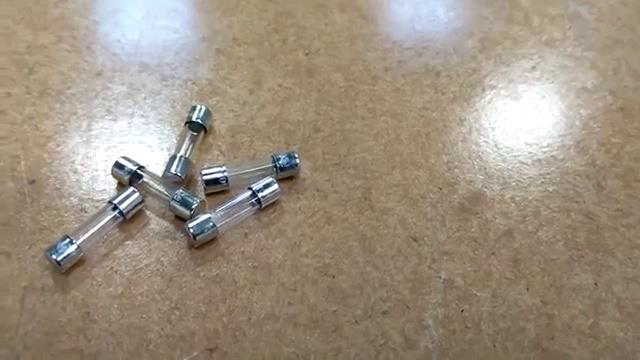
[1m:53s] Now let's talk about circuit breakers. Unlike fuses, circuit breakers are intended to be reused each time it is tripped or when a power surge or overcurrent event happens. Much like fuses circuit breakers are designed to trip at a certain current level.
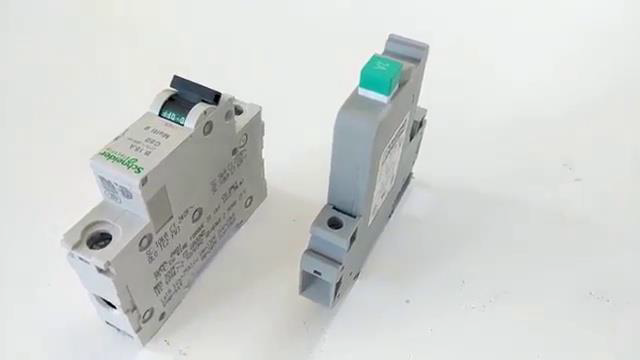
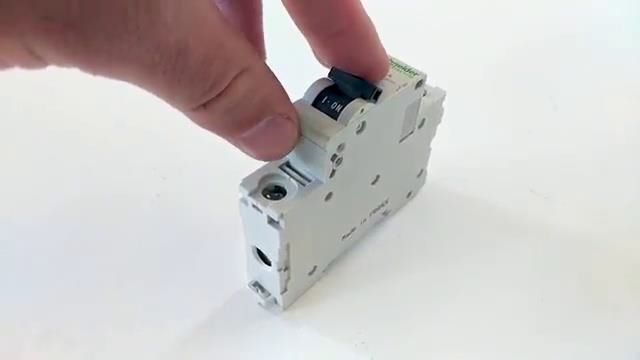
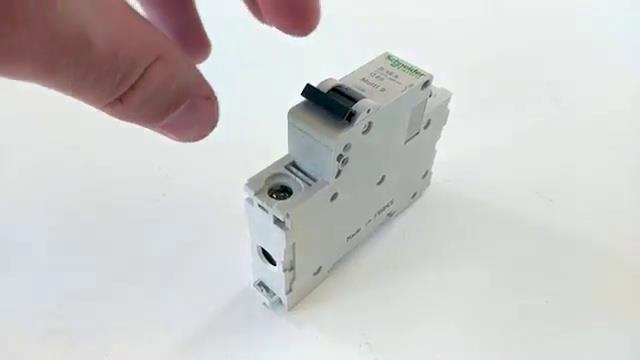
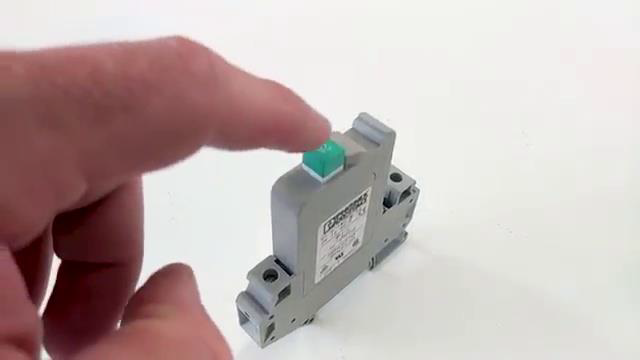
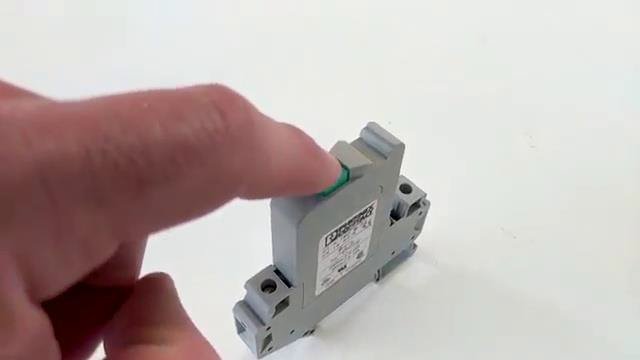
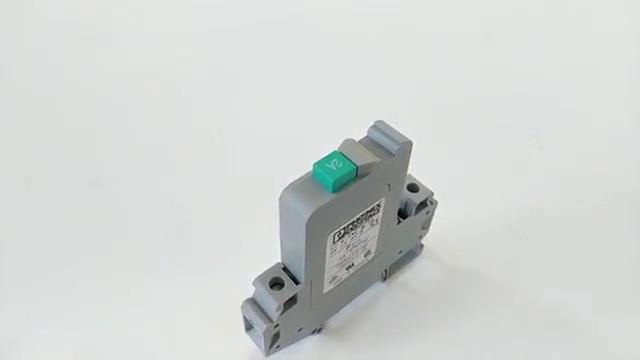
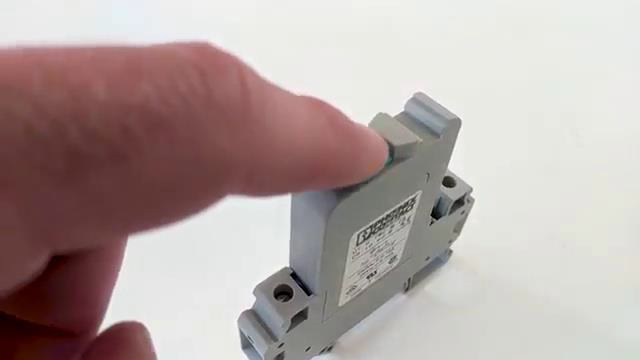
[2m:13s] This is intended to protect both equipment and anyone in the area of that particular circuit.
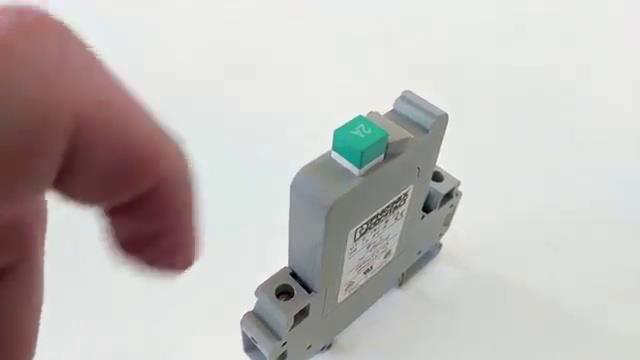
[2m:19s] Circuit Breakers can be found in just about any variation you can imagine, from a single phase low current application all the way to three phase and incredibly high current applications.
[2m:31s] This reusability and the amount of variations that can be found ,ake them a great option in many different applications. So how do I know which device is best for my particular application? there are a few main differences that you should look at when deciding what device will best fit your particular needs.
[2m:51s] First and foremost, let's talk about the speed at which the circuit can be interrupted. Both circuit breakers and fuses can interrupt the flow of electricity very quickly. However,
[3m:5s] fuses are faster at performing this function.
[3m:8s] So, when it is critical to interrupt power in the event of a surge or over current event very quickly, it is more common to see fuses being used in these scenarios. In some cases, fuses may even be required by code because of their quick interrupting nature.
[3m:28s] A downside of using fuses are the fact that they need to be replaced each time they are used. This can be very expensive, especially in higher current applications or where specialty fuses are needed.
[3m:42s] Another disadvantage of using a fuse is that the electrical connection points are often exposed and can't create a safety hazard.
[3m:50s] By using a circuit breaker, you eliminate the need to replace the unit each time a surge occurs. This is because the circuit breaker functions very differently.
[4m:1s] Instead of burning a piece of sacrificial wire like a fuse, it interrupts current by disconnecting, electrical contacts.
[4m:10s] When the circuit breaker is reset, those contacts will once again become connected allowing for current to pass through the circuit until another surge or overcurrent event is seen. Also, some circuit breakers are specifically designed to protect multiple circuits at one time, which makes them a common choice for households and commercial buildings. These branch circuit protectors are designed for this purpose alone and offer great convenience and operational safety in these particular situations.
[4m:45s] On the other hand, fuses are more commonly used for protection on individual devices because of the cost savings and simplistic functionality that they can offer.
[4m:56s] So, depending on the application you may encounter,
[4m:59s] it will largely dictate which device will be better suited for your specific needs.
[5m:5s] But as a general rule, fuses are more simplistic and reliable, they cost less initially, and are better suited for individual circuit protection, but can create more cost over time with each use and create hazards due to the exposed connection points, whereas circuit breakers offer better branch circuit protection and do not need to be replaced after each use. They are, however, more expensive initially, and because of their complexity are more prone to failure over time.
[5m:38s] For a full line of both fuses and circuit breakers and thousands of other products, please go to our website. For more information or other educational videos, go to RSPSupply.com, the Internet's top source for industrial hardware. Also, don't forget: like and subscribe.




